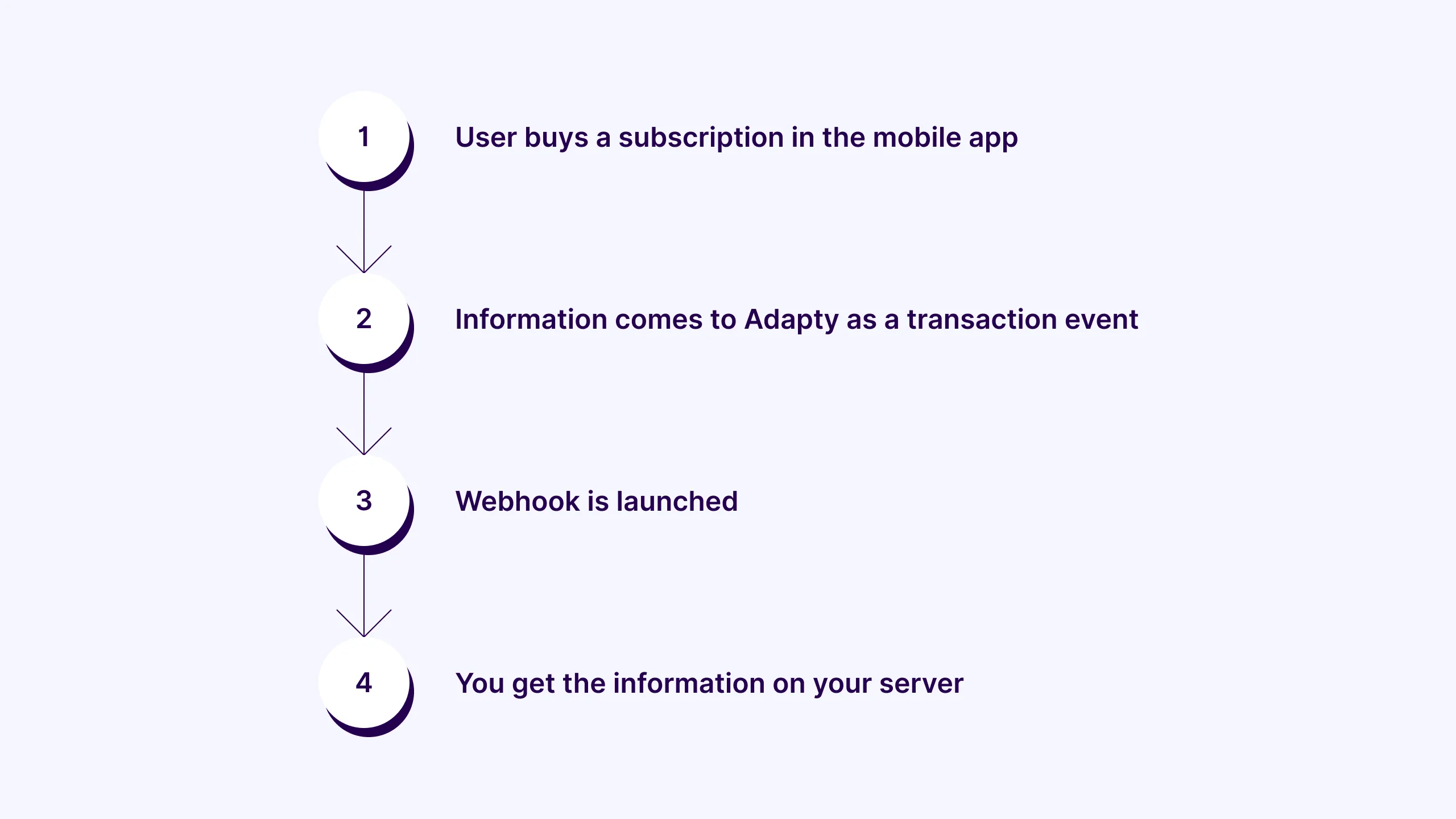Webhook integration
A webhook is a convenient and fast way to get notifications about events. For example, if a new trial is started, a subscription is renewed, or a billing issue happens. The webhook mechanism works through a callback function. You set up a URL (called Endpoint URL) to which an HTTP request is sent when an event occurs.

Unlike API requests, which require repeatedly requesting information from the server, a webhook is configured only once. When the target event occurs in your app, it immediately sends data via the HTTP protocol.
With webhooks integrated, you can:
- Keep track of subscriptions and purchases in your backend system.
- Automate processes and workflows based on subscription lifecycles.
- Engage with subscribers by reminding them of app benefits, addressing unsubscribe decisions, and handling billing issues.
- Conduct a detailed analysis of the user behavior.
Integration characteristics
| Integration characteristic | Description |
|---|---|
| Schedule | Real-time updates |
| Data direction | One-way data transmission: from Adapty to your server |
| Adapty integration flow | Events are sent by the Adapty server once they are received |